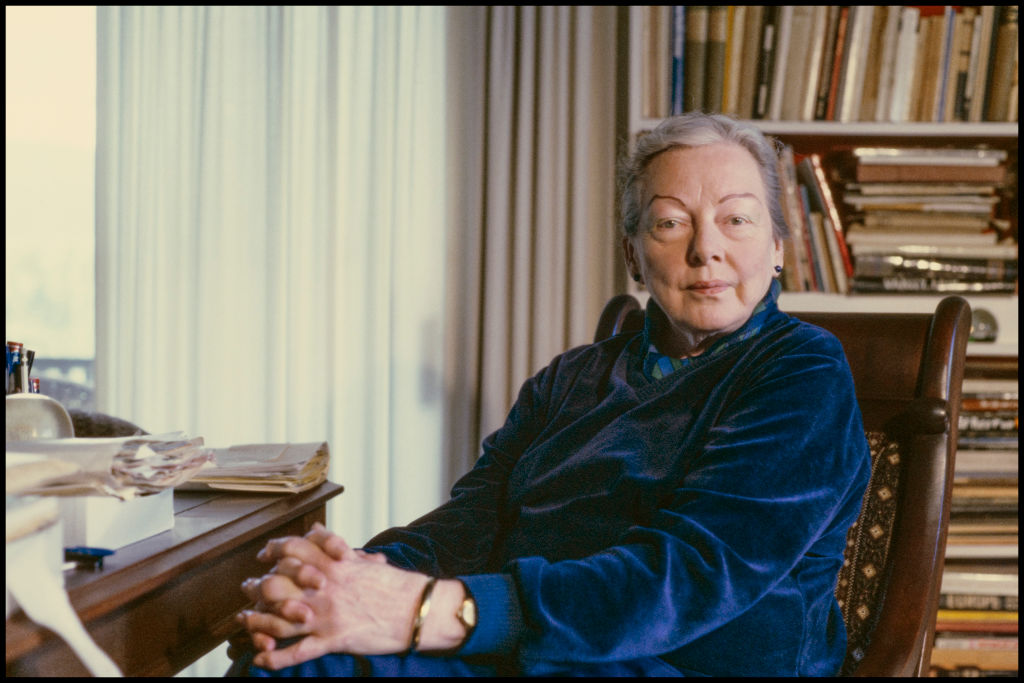Your cart is currently empty!
Why have children or plant trees?

Photo by Janet Fries/Getty Images
M.F.K. Fisher was an accomplished author and gastronome who brought the art of food writing into the realm of literature. From the age of nineteen she kept a journal, and this entry comes thirteen years down the line as she cared for her beloved husband, the writer and artist Dillwyn Parrish, whom she affectionately referred to as ‘T.’ For a few years, and in fact for most of their relationship, he had been living with Buerger disease, an incurable degenerative condition that had led to the amputation of one of his legs and constant, unbearable pain. The pair had moved from Switzerland to California in search of a more comfortable life, but both were struggling to stay positive as ill-health and World War II tightened their grip. Early one morning, a year after this entry was written, Parrish went for a walk in the surrounding hills and with a pistol took his own life, the single gunshot waking Fisher from her sleep and marking the end of their journey together.
The Diary Entry
28.v.40
Many times lately I have had the time, and even the wish, to put something down in this book. But some of those times I have felt almost morbidly slack and in a way resentful of the way T. feels—resentful that this is happening to him. I don’t want it to happen to anyone, of course, but especially not to him. And then other times have found me all at odds with myself so that I could hardly think in phrases, much less sentences, because of the things happening in Europe and even in this country. It is queer what a hopelessness has crept into all my thoughts. It is almost a slackness. Why be so economical? Why be generous? Why have children or plant trees? This time next year or next month or tomorrow—who knows what irrevocable change will have been made in all our values? Will we have soap to wash with, or a blanket, or even any spiritual honor? Then I am ashamed, as well as startled, and I know that I am dauntless, just as humans all over the world are dauntless. Pain and disaster and grim dreary poverty can never kill me and my inner self.
All this probably seems exasperated and neurotic. It is true, though, that at this moment the whole pace of existence, here at Bareacres as well as in fallen Brussels and in London awaiting its annihilation, has been sped up past reality into a state bordering on nightmare. We live fairly calmly here on the hill and have even sickened somewhat to listening to the radio news… but within us is the same dumb watchfulness, the same feeling of helpless inevitability, that soldiers and pregnant animals everywhere know too well.
The doctors could do nothing for T. The day was an exhausting one, and we were sick and dismayed when we saw that there was nothing. We had even welcomed the idea of more hospitals, operations… anything to change this half-life of pain for T. One of the orthopedic specialists leapt agilely from his own field into psychiatry, with unbecoming haste, and talked behind closed doors of night dreams, fear of impotence, brooding… practically said that all T.’s pain was a foolish idea and no more. Hal prescribed rest, more B-1 pills, another visit to Pasadena in three weeks. Zubzubzub.
Further Reading
Published in 1999, From the Journals of M.F.K. Fisher is a stunning book, bringing together three volumes of her journals alongside a number of letters and short stories. Her writing is remarkable. The entries written during the decline of Parrish’s health are vivid and painful to read, but very worthwhile. The book is now out of print and copies seem scarce, but I recommend hunting for one.
Excerpted from From the Journals of M.F.K. Fisher, published in 1999 by Pantheon Books. Reprinted by kind permission of The Literary Trust u/w/o/ M.F.K. Fisher.
Make a Donation
If you’re able, please consider supporting Diaries of Note with a donation.

Leave a Reply